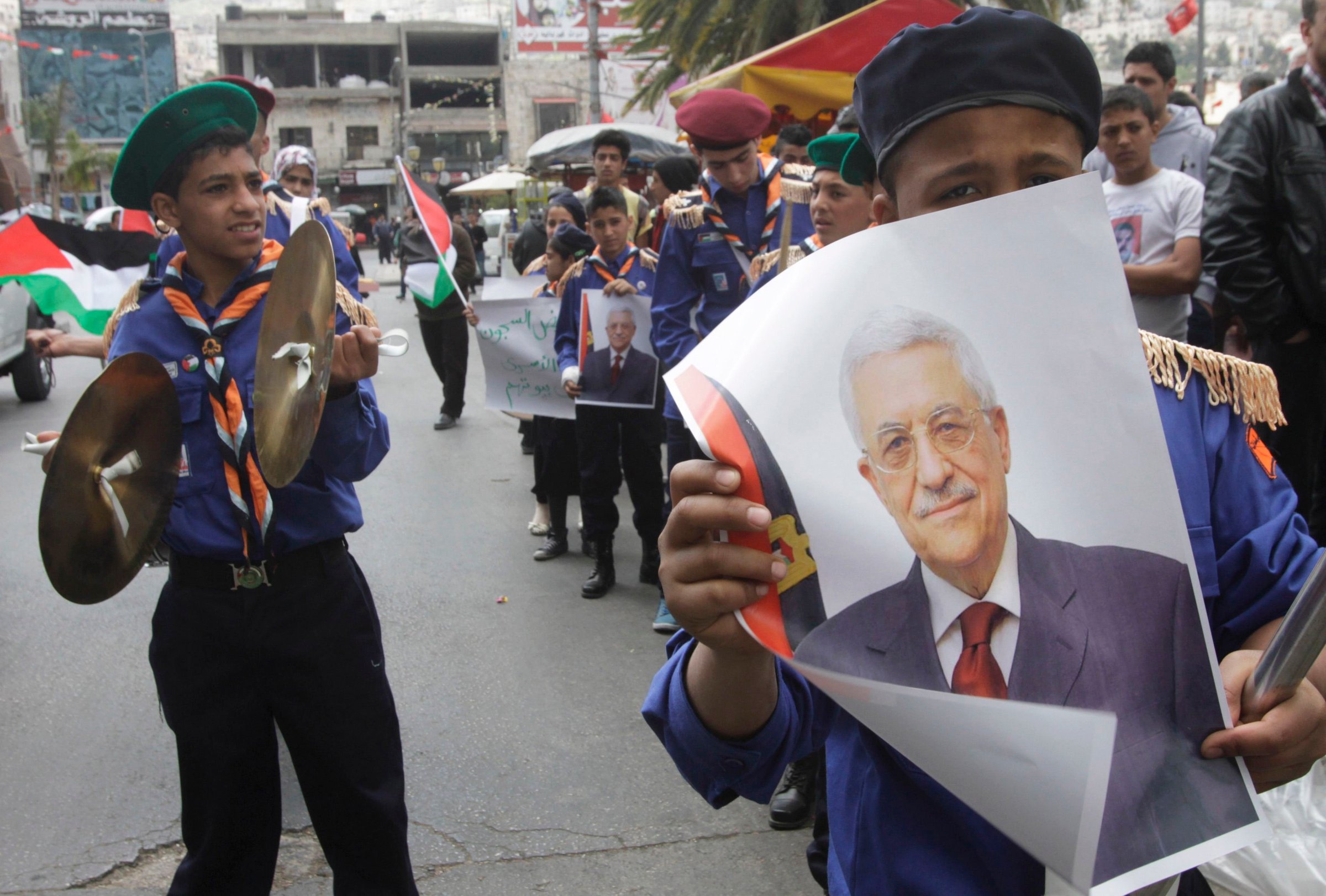
What Palestinian Authority President Mahmoud Abbas intended on Tuesday when he abruptly signed a raft of international treaties was not to sink the peace talks with Israel, but rather to aim a shot across its bow. Israel had failed to live up to its promise to release 26 Palestinian prisoners on Saturday, a goodwill gesture vowed by Israeli Prime Minister Benjamin Netanyahu at the start of the talks in July. The Palestinians entered the talks with a promise of their own: to abstain, for as long as negotiations continued, from joining U.N. agencies that might give Palestinians leverage over Israel in international courts.
So by abruptly signing 15 U.N. treaties and conventions — and doing it on television — Abbas was reminding Israel that a deal’s supposed to be a deal. Even if the deal at hand involves only how to continue talks that so far appear to have gone nowhere.
“We don’t want to confront anyone,” says Xavier Abu Eid, a spokesman for the Palestine Liberation Organization’s negotiations unit. “It’s not a step against the Americans. But Israel was not abiding by its obligations, and therefore we decided we were not obliged to keep ourselves from our rights.”
Abbas made as much clear in his remarks on Tuesday, praising U.S. Secretary of State John Kerry’s “superb efforts” and vowing to continue the talks. Still, a sense of crisis ensued. The news cycles had been humming with reports that, in order to keep the talks moving beyond the April 29 deadline — and the Palestinians away from the U.N. — President Barack Obama might release Jonathan Pollard, the American sentenced to life in prison for spying for Israel. When Abbas picked up his signing pen, Kerry called off his plans to fly in to consult with the Palestinians. And after a dozen trips to the region and 39 meetings with the Palestinians alone, a canceled session will qualify as news.
Still, there were signs on Wednesday that Abbas’ move would bear fruit. Danny Danon, a hawkish senior member of Netanyahu’s Likud party, said the Prime Minister was now prepared to proceed with the release of the 26 prisoners — a move that Danon had vowed would prompt him to step down as Deputy Minister of Defense in protest.
“Now, the only reason you don’t see the prisoners boarding the buses and me resigning is Abu Mazen is trying to get more,” Danon tells TIME, referring to Abbas by his commonly used kunya, an Arabic honorific. “What we see today is Abu Mazen trying to blackmail more trade-offs.” Danon said in order to continue the talks, the Palestinian leader seeks the release of high-profile prisoners like Marwan Barghouti, a popular leader of Abbas’ secular Fatah party serving multiple life terms on terrorist convictions. Earlier in the week a senior Palestinian official privately hinted that Barghouti’s release may be imminent.
A spokesman for Netanyahu did not respond to a request for comment.
There’s ample time to cobble together the terms of an extension: four weeks remain on the official clock, and both sides have an interest in overtime. Embracing the “peace process” shields Israel from international criticism for its continued occupation of territories captured in 1967. In a conference call arranged on Tuesday by the Israel Project, a nonprofit that promotes Israel’s position, Udi Segal, a diplomatic correspondent for Israel’s leading news station, Channel 2, called the talks “a strategic Israeli weapon against international pressure, especially from Europe.”
And on the Palestinian side, Abbas has long promoted achieving a Palestinian state through negotiations. Most Palestinians think he will agree to an extension, according to a poll released on Wednesday by the well-regarded Palestinian Center for Policy and Survey Research, and almost two-thirds think he should if more prisoners are released. The extension-for-prisoners trade is supported even if it means delaying the diplomatic confrontation in the U.N., the strategy that has the broadest support among the Palestinian public, most of whom have given up on negotiations.
Israelis harbor the same reservations. Polls consistently show Jewish Israelis support talks in principle but do not believe they will produce an agreement. And their pessimism appears to be justified by the current contretemps: none of the bargaining is around issues of borders, or refugees or the status of Jerusalem — the core issues of a final pact. Rather, the debate has been about what it would take to keep the talks going, peripheral issues known in the shorthand of the peace process as CBMs, or “confidence-building measures.”
“But they’re not even CBMs because I don’t think anybody is expecting them to build confidence,” says former Israeli negotiator Pnina Sharvit-Baruch. “All these kinds of external elements are a way of gaining time, I guess.”
If there actually has been progress on the core issues, Sharvit-Baruch, now a law professor at Tel Aviv University, says she’s been impressed by the secrecy that both sides maintained since the talks began in late July. But, she adds, “maybe they’re good at keeping secrets because there’s nothing to reveal. I’m not optimistic, unfortunately.”
— With reporting by Rami Nazzal / Ramallah
More Must-Reads from TIME
- Donald Trump Is TIME's 2024 Person of the Year
- Why We Chose Trump as Person of the Year
- Is Intermittent Fasting Good or Bad for You?
- The 100 Must-Read Books of 2024
- The 20 Best Christmas TV Episodes
- Column: If Optimism Feels Ridiculous Now, Try Hope
- The Future of Climate Action Is Trade Policy
- Merle Bombardieri Is Helping People Make the Baby Decision
Contact us at letters@time.com